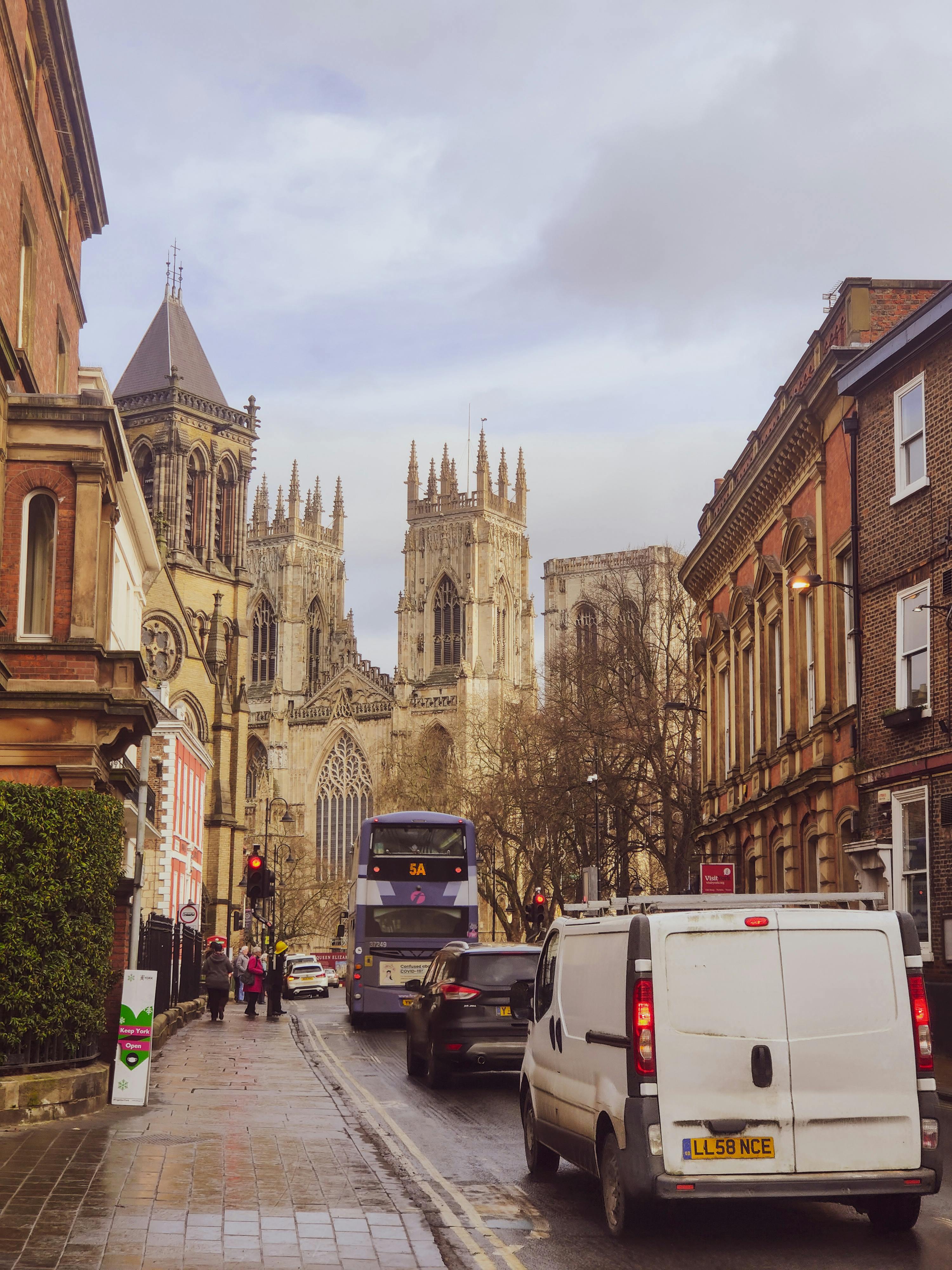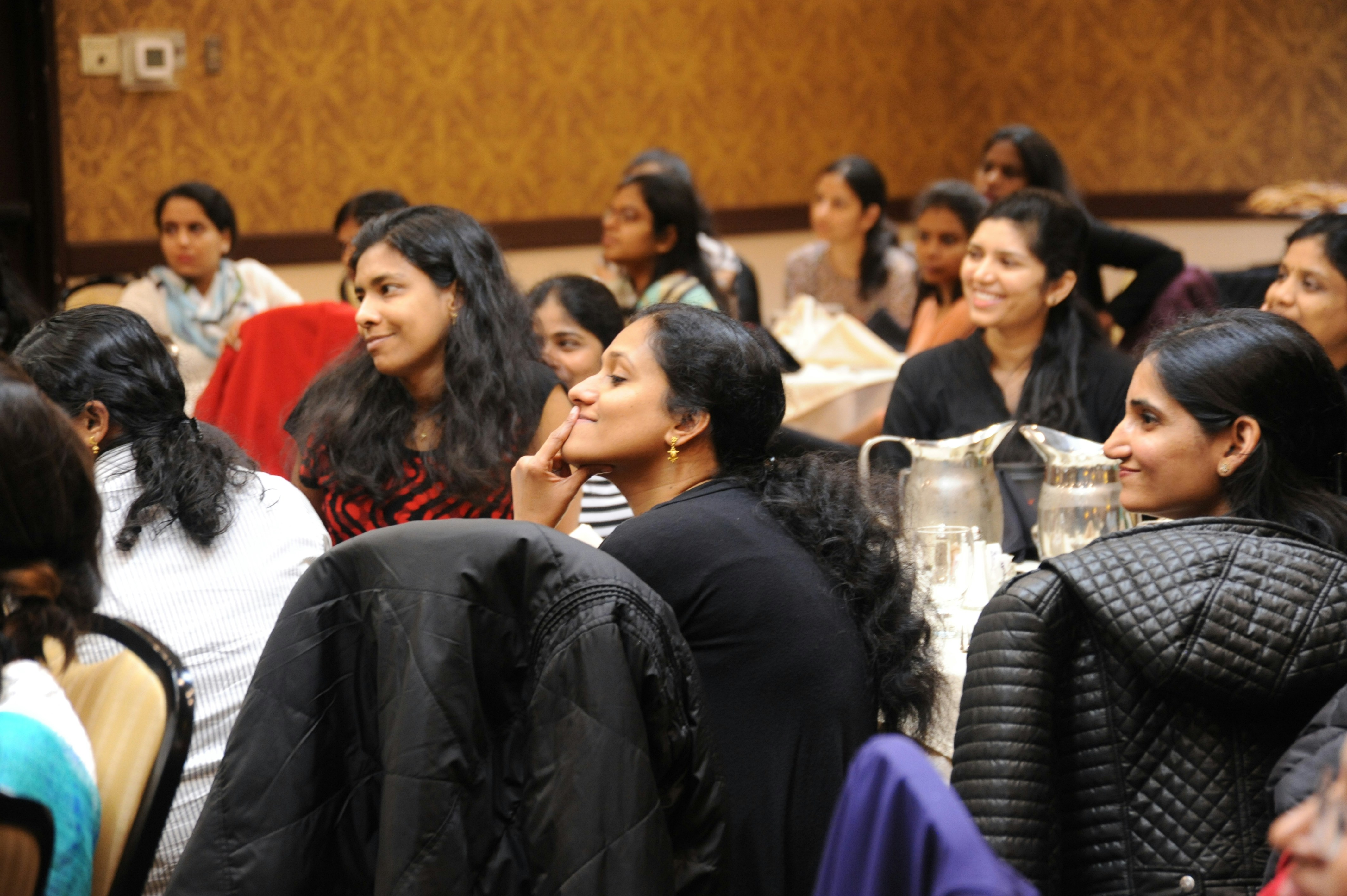Interested in studying MBBS in the UK? With the top 4 out of 10 medical colleges in the world, the United Kingdom is, without doubt, the best destination to study an MBBS course. If you still hold concerns, get to know more about universities, fees, entry requirements, scholarships, and every detail about MBBS in this article.
What is MBBS?
MBBS is the most commonly used abbreviation of Bachelor of Medicine and Bachelor of Surgery, which is sometimes also abbreviated as BM BS, MB ChB, MB BCh, or MB BChir. It is an undergraduate medical degree granted by medical colleges that adhere to the United Kingdom’s higher education tradition. MBBS is usually a 5-6 year course, covering pre-clinical, para-clinical, and clinical stages, followed by a 1-year internship. It is designed to lay the foundation to become a qualified doctor who is eligible for registration with the General Medical Council (GMC).
Generally, MBBS is equal to Bachelor of Medicine (BMed, BM, or MB) in China and Doctor of Medicine (MD) in North America. They all represent the necessary educational progress to gain medical knowledge and practical experience to become a doctor, though the pathways to that goal are different.
MBBS in UK: Overview
MBBS in the UK usually lasts for 5-6 years, with an average tuition fee of around £40,0000 to £50,000 per year. Entry requirements are strict, often at least AAA and must include Chemistry and Biology. Here is a brief overview:
| MBBS in UK | |
|---|---|
| Top Universities | Cambridge, Oxford, ICL, UCL |
| Course Duration | 5-6 years |
| Tution Fee | £40,0000 to £50,000 per year |
| UK MBBS fees for Indian students | 47 to 59 lakh per year |
| Scholarships for Indian students | Inlaks Shivdasani Foundation Scholarships |
| Eligibility Criteria | AAA or A*AA, must include Biology or Chemistry, and one more for Physics or Mathematics |
| Average Annual Salary after Graduation | £37,000 for beginner, £120,000 for experienced |
Why Study MBBS in the UK?
Studying MBBS in the UK brings students worldwide recognition from employers and institutions like the WHO, cutting-edge education and research in top medical schools, and numerous clinical opportunities to practice what you have learned. Also, the MBBS course duration will usually be shorter, but it comes with lucrative salaries. MBBS in UK for Indian students is extremely advantageous, as there will be no need to learn another language before studying or take additional exams to practice after graduation.
- International Recognition: MBBS in the UK is a gold standard, recognised by medical institutions and the World Health Organisation (WHO). Graduating from one of the GMC-approved schools will add immense credibility to your qualification.
- World-Renowned Education: The United Kingdom is home to a group of top medical schools, including 4 of the top 10 by QS World University Rankings 2025. Oxford, Cambridge, ICL, and UCL enjoy a centuries-old tradition of medical excellence and innovation. You will learn from leading researchers and doctors and benefit from a comprehensive, integrating cutting-edge curriculum.
- Extensive Clinical Exposure: UK medical courses usually integrate clinical contact with patients from the first or second year, earlier than many other systems. Students will be equipped with comprehensive practical skills to become qualified doctors.
- Shorter Course Duration: The MBBS course in the UK usually lasts 5-6 years, shorter than in many other countries, together with a clear and structured roadmap for your career.
- High Earning Potential: The salary for MBBS graduates in the UK will typically reach between £65,000 and £100,000 for experienced doctors, representing one of the most lucrative occupations.
- Language Advantage: For international students proficient in English, studying in the UK eliminates any potential language barrier in academia and daily life, allowing you to focus entirely on your demanding studies.
- No Additional Exams for Indian Students: India Students with an MBBS degree in the UK will no longer need to attend the Foreign Medical Graduate Examination (FMGE), but can register at the National Medical Commission (NMC) to practice in India directly.
Top Medical Colleges in the UK
According to QS 2025, the United Kingdom is home to 4 of the 10 top medical universities, including Oxford, Cambridge, ICL, and UCL. If you’re seeking top medical colleges in the UK, we have listed the top 10, together with MBBS course duration, annual fees for international students, and entry requirements.
| Best Medical Colleges in UK | ||||
|---|---|---|---|---|
| University | QS 2026 | MBBS Fees | MBBS Course Duration | Entry Requirements |
| University of Cambridge | #6 | £70,554 | 6 years (3+3) | A*A*A IB: 41-42 points, with 776 at Higher Level |
| University of Oxford | #4 | Pre-clinical: £49,400 Clinical: £65,250 | 3 years (BA) 6 years (BM BCh) | A*AA in three A-levels (excluding Critical Thinking and Thinking Skills) IB: 39 (including core points) with 766 at HL |
| Imperial College London | #2 | £55,800 | 6 years | AAA (A in Biology or Chemistry) IB: 38 points |
| Queen’s University Belfast | #199 | £39,200 | 5 years | A*AA or AAA + A in a fourth AS-level |
| Queen Mary University of London | #110 | £49,950 | 5 years | A*AA IB: 37 points overall |
| University of Glasgow | #79 | £58,890 | 5 years | AAA in Biology and one of either Physics or Mathematics IB: 38 (6,6,6 HL) |
| University of Dundee | #428 | £ 55,900 | 5 years | AAABB, higher – either chemistry or biology and another science IB: 37 points, including 6, 6, 6 at higher level |
| University of Bristol | #51 | £45,800 | 5 years | AAA IB: 36 points overall |
| University College London | #9 | £53,400 | 6 years | A*AA ,A* in Biology and Chemistry IB: 39 points |
| The University of Edinburgh | #34 | £51,961 | 6 years | AAA IB: 38 points with 666 at HL |
MBBS Course Duration
The MBBS course duration is usually 5-6 years, often divided into pre-clinical, para-clinical, and clinical stages:
- Students will learn about scientific principles, clinical skills, and basic science subjects during the first two or three years.
- Para-clinical stage for 1-2 years is offered at some universities like Queen’s University Belfast, with classroom-based and clinical teaching to achieve the transition from theory to practice.
- In the final stage for 1-3 years, you will usually enter the local hospitals to experience how clinical teams work together to deliver patient care from beginning to end of life.
Cost of MBBS in UK
The cost for studying MBBS in the UK varies from £20,000 to £70,000 per year for international students, depending on the university you choose. Cambrige and Oxford can be expensive for India students, with a tuition fee exceed £65,000 per year. Students who plan to study MBBS in UK should notice that there are also fees before admission and cost of living that you should taken into consideration.
| MBBS Pre-Admission Costs | |
|---|---|
| Category | Cost |
| IELTS Test | £215 to £250 |
| NEET Exam for Indian Students | £15 |
| Application Fees | £56.66 to £85.49 |
| Visa Application Fee | £524 |
| Immigration Health Surcharge (IHS) | £776 |
Tuition Fees for MBBS: For most MBBS courses in the UK, the tuition fee for international students typically costs around £40,0000 to £50,000 per year, which means UK MBBS fees for Indian students will be 47 to 59 lakhs. Oxford and Cambridge can be more expensive, and Queen’s University Belfast usually costs under £40,000 per year.
Cost of Living in the UK: For students, the monthly expenses will be £1,300-£1,400 for living in London, and £900-£1,300 for living outside London, according to the British Council, covering accommodation, bills, groceries, travel, entertainment, and study costs. The actual cost will usually exceed this data; for example, living costs for the academic year starting in 2026 are estimated to be between £1,405 and £2,105 for each month in Oxford, according to the Oxford University website.
Eligibility Criteria for MBBS in UK
MBBS eligibility criteria also vary from university to university, but usually a minimum AAA in A-level and more than 36 points in IB are required if you want to enter one of the top UK medical universities. It is always important to check the specific entry requirements on the university’s official course detail page, since basically every university has different rules. Before you get to the next step, check some common requirements to get insights:
- A Level: AAA or A*AA is the basic requirement for top medical schools. Usually must include Biology or Chemistry, and one more for Physics or Mathematics.
- IB: The lowest required by the top 10 medical colleges is 36 points overall, often three Higher Level subjects at 666 or more, including Chemistry or Biology, plus one further science subject from Chemistry, Biology, Physics or Maths.
- GCSE: English Language grade C/4 or equivalent.
- IELTS: 7.0 – 7.5 overall, usually a minimum of 7.0 in Speaking.
- Admission Test: Some universities like Cambridge, Oxford, and ICL will require students to take the University Clinical Aptitude Test (UCAT) as part of their application.
- Interview: Universities like ICL will also organise multiple mini interviews if you are shortlisted to assess your motivation and understanding of medicine as a career, and others, such as your empathy, leadership, teamwork, etc.
Scholarships for MBBS in UK
Given that UK MBBS fees for Indian students and other international students from Asia can be extremely high, securing funding is a critical and significant part of the planning process. For example, Queen Mary University of London provides The John Abernethy (Barts) Scholarship of £5,000 per year for two new medical students and one new dental student each year based on household income and academic achievement. Some universities may not provide specific funding for MBBS students, but for all students, and they will also be highly competitive.
Most UK medical schools offer their own scholarships and bursaries for outstanding international students. They can be based on:
- Academic Merit: Awarded for exceptional grades in your previous qualifications (e.g., A-Levels, IB, Class 12 boards).
- Financial Need: Bursaries are designed to support students who demonstrate a need for financial assistance.
- Specific Criteria: For students from certain countries (e.g., India) or regions.
Apart from university-provided scholarships, you can also consider UK Government Scholarships, charitable trusts, corporate scholarships, and more. For MBBS in UK for indian students, Inlaks Shivdasani Foundation Scholarships provides full scholarships for top students to study at renowned international institutions. Many Indian banks like SBI, HDFC Credila, and Axis Bank offer education loans for studies abroad.
Jobs for MBBS in UK
After successfully completing your MBBS course, you will need to apply for a license to practice through GMC registration, and a Certificate of Readiness to Enter Specialty Training (CREST) from your current training context. If you graduate from a GMC-approved UK medical school, your university will provide the GMC with evidence (degree and completion of the UK Foundation Programme) that you have met the required standards. After you will be able to find a job to practice what you’ve learned.
Here are the most popular jobs and the MBBS doctor salary in UK:
| MBBS Jobs and Salary in UK | |
|---|---|
| Roles | Salary Ranges (Annual) in UK |
| General Practitioner | £69,000 to £108,000 |
| Surgeon | £37,000 to £140,000 |
| Anaesthetist | £32,000 to £126,000 |
| Psychiatrist | £32,000 to £120,000 |
| Cardiologist | £36,000 to £139,882 |
| Emergency Medicine Doctor | £50,000 – £160,000 |
| Paediatrician | £30,000 – £131,964 |
| Ophthalmologist | £43,923 – £126,281 |
| Radiologist | £32,398 – £139,882 |
| Pathologist | £40,000 – £145,000 |
Study MBBS in UK with uhomes.com
It is undeniable that MBBS in the UK for indian students and many other international students can be very expensive. Planning your budget includes not only tuition fees and scholarships, but also the cost of living. Accommodation will be the major expense in your monthly expenses, securing a budget-friendly accommodation will help you save a lot of money and avoid hassle.
When it comes to student housing, uhomes.com is your reliable partner with a lot of student accommodations near top medical colleges in England, Wales, and Scotland. For example, you can find student accommodation in London from £129/week, Birmingham student housing from 88/week, and Edinburgh student apartments from £166 per week. Also, we offer all-inclusive bills and furnished rooms, so you can save more for your rooms and leave no arguments with flatmates. If you want to live in some of the most popular apartments near campus, check our exclusive offers and listings. uhomes.com is dedicated to help you secure the ideal and affodable student accommodation away from home.

Final Thoughts on MBBS in UK
For students who want to pursue a career in medical-related fields, studying MBBS in the UK will be a choice second to none, with a world-recognised reputation and top medical universities. There is without doubt that MBBS courses are costly, but the return in the future is also substantial. Since the entry requirements are generally strict, it is recommended to view details clearly and plan your grades in advance. Finally, do not forget to use uhomes.com to look for affordable student accommodation after you get the offer.
FAQ on MBBS in UK
Is UK a good destination for MBBS?
Yes, the UK is an excellent destination for an MBBS, offering world-class education, prestigious universities, and international recognition. Graduates are highly sought-after globally. However, it is extremely competitive and one of the most expensive options, with high tuition fees and living costs. It is a top-tier choice for those who can meet the academic and financial requirements.
Can I study MBBS in the UK without NEET?
For Indian students, no. The National Medical Commission (NMC) mandates that you must qualify NEET to be eligible to study medicine abroad and to practice in India upon return. While UK universities set their own entry requirements, without a valid NEET score, you cannot obtain the required Eligibility Certificate from the NMC.
How many years does MBBS course takes?
The standard MBBS (or equivalent like MBChB) course in the UK is typically 5-6 years long for students entering directly from secondary school. For university graduates, there are accelerated 4-year graduate-entry medicine programs. This is followed by a mandatory 2-year UK Foundation Programme for full registration and practice.
How much does it cost to study MBBS in the UK?
How much is UK mbbs fees for Indian students
For Indian students, the annual tuition fees for an MBBS in the UK range from approximately ₹47-59 lakhs, depending on the university. With living costs adding ₹12-15 lakhs per year, the total cost for the 5-6 year course can easily exceed ₹2 crores, making it a significant financial investment.
How much does an MBBS doctor earn in the UK?
An NHS junior doctor starts at around £32,000 annually, rising during training. A fully qualified consultant can earn between £88,000 and £119,000. Surgeons or those with significant private practice can earn substantially more, but the overall income is highly dependent on experience, specialism, and years of service.
Is MBBS from the UK valid in India?
Yes, an MBBS (or equivalent like MBChB) from a UK medical school is valid in India. However, to practice medicine in India, you must pass the Foreign Medical Graduates Examination (FMGE) screening test and complete a compulsory rotating internship in India. The degree must be from a university recognized by the Indian National Medical Commission (NMC).
Is MBBS better in India or the UK?
The choice depends on your goals. The UK offers global recognition, advanced research, and high-standard training but is extremely expensive. India is far more affordable and ideal for those intending to practice locally, but the infrastructure and patient load can vary greatly between colleges.
Can I do PG after MBBS in the UK?
Yes, you can pursue postgraduate (PG) training after MBBS in the UK. This requires full registration with the General Medical Council (GMC), typically after completing the UK Foundation Programme. You can then apply for specialty training (e.g., surgery, medicine) through a competitive process to become a specialist or consultant.
How many medical colleges are there in the UK?
There are approximately 44 medical schools in the United Kingdom offering GMC-recognized degrees (e.g., MBBS, MBChB). These include world-renowned institutions like Oxford, Cambridge, Imperial, and many others across England, Scotland, Wales, and Northern Ireland. All are regulated by the General Medical Council (GMC) to ensure high standards of education.








